The future of Western Sahara is increasingly uncertain in the face of new world order: El Bachir Ahmed
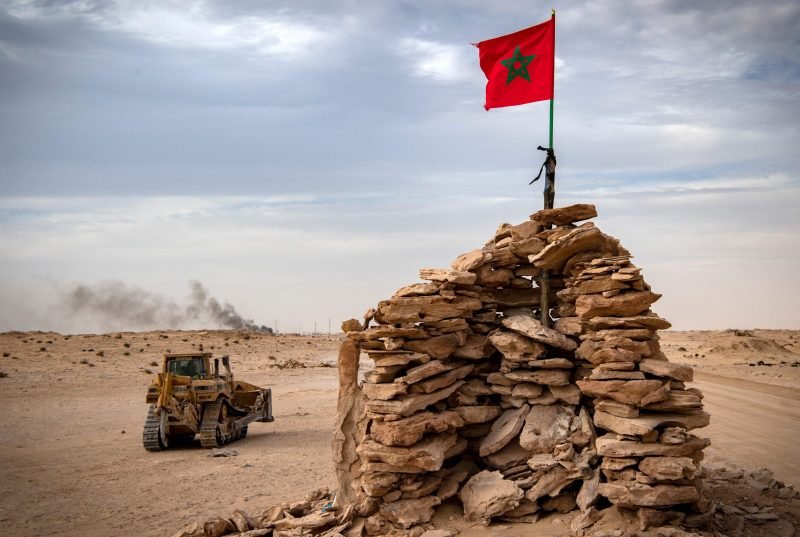
On March 19, Spain recognized Morocco’s claim to Western Sahara. This region was colonized by Spain until 1975. Since then it has been seeking independence while Morocco claims Western Sahara as part of its own territory. To know more about this issue from the perspective of Western Sahara, The Kootneeti’s Consulting Editor, Niranjan Marjani, spoke to Mr. El Bachir Ahmed (name changed), a researcher from Western Sahara.
Niranjan Marjani: Could you please tell us about the background of Western Sahara? How the region was colonized and what is the status after Spain’s withdrawal in 1975? What are the reasons behind Western Sahara’s demand for independence?
El Bachir Ahmed: Western Sahara is located west of the Maghreb and shares border with: Morocco to the north; to the northeast Algeria with which it shares a short border; and finally Mauritania in the east, and throughout the south, while its entire western border overlooks the Atlantic. Its area is about 266,000 km².
At the time of its occupation by Spain in 1884, the territory of Western Sahara was essentially occupied by warrior, maraboutic and tributary tribes, organized and independent of each other. In mean time, the various Moroccan expeditions to this territory did not lead to an effective submission of the indigenous populations to the sultans of Morocco. In this optic, in 1767, the signing of the Treaty of Marrakesh between the Moroccan Sultan Muhammad bin Abdullah and the Spanish King Carlos III, in which the Moroccan Sultan acknowledges that he has no sovereignty after Wadi Noun in reference to Western Sahara from the river of Oued Noun actually south of Guelmim Moroccan city.
The current society of Western Sahara is formed by the fusion of the two ethnic groups Arab and Berber populations, with a black pupil of sub-Saharan Africa who forms the basis of the society of Western Sahara. You have to know, that Mauritania share with Western Sahara people the same culture of “Baydan” (the whites) and the same dialect Hassaniya.
In conformity with the Act of Berlin, the Spanish government announced its protectorate over Rio de Oro and the adjacent region. Thereby, in 1887, the region was placed under the authority of the Governor-General of the Canary Islands. It’s in this perspective that Spain continued colonizing Western Sahara. But the Spanish occupation of Western Sahara became effective in the eyes of other great European colonial powers from the following agreements: the agreements of 27 June 1900, the agreement of 3 October 1904 and the agreement of 12 November 1912, in which France recognized the Spanish rights over Rio de Oro, Saquia El Hamra and the land lying between 27°40 North latitude and the course of Oued Draa.
In 1950, General Franco made his first visit to Western Sahara in order to demonstrate the vitality of Western Sahara for his regime, to convince the western world, that Western Sahara could be strategic importance in the west struggle against communism.
With the Moroccan claim over Western Sahara after its independence in 1956, Spain declared Western Sahara as a province of Spain number 53. Following this politic, numerous indigenous Saharawi were established in the provincial council. Spain installed the new Djemma, known as Assembly of the Saharan, who represented all the tribes of Western Sahara. The Spanish citizenship was granted to all the natives.
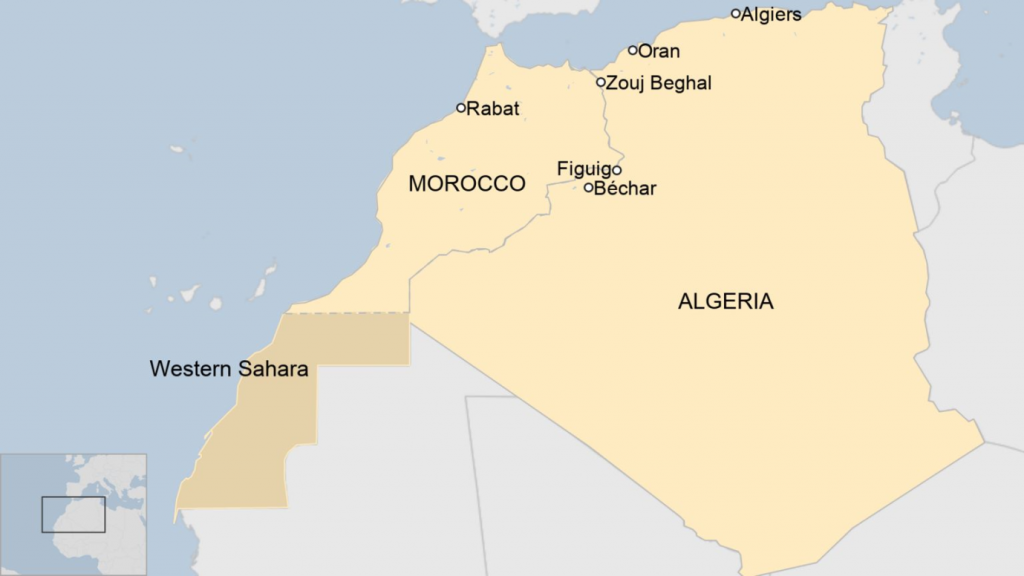
In this context, Spain built a strong cooperation between France and Morocco materialized in 1958 by the operation called Ecouvillon to put an end to Western Sahara tribe’s resistance. And From this moment we can say that Western Sahara came totally under the rule of Spain.
The active exploitation of phosphates in early 1960, to participate in the development of the region and to stimulate the growth of Spanish economy witnessed a large flow of immigrants from Spain to Western Sahara.
Indisputably, the Western Sahara conflict arose as a legacy of colonialism. This territory was qualified as a non-self-governing territory by the United Nations in 1963 when Western Sahara was still a Spanish colony.
Indeed, since 1965, the United Nations has been making efforts to end the decolonization of Western Sahara, on the way to respect the right of people of Western Sahara to dispose of them, commonly through a free referendum where they can choose their destiny.
However, neither Spain, which occupied Western Sahara from 1884 to 1976, nor Morocco today has respected the international law of decolonization. This is the reason for the unfinished decolonization in Western Sahara.
The Saharawi people are the nomad people. They don’t believe in frontier. These people have been used by Morocco to struggle against the French colonial rule in Morocco, and in Mauritania using the concept of Jihad in Muslim religion against the Christians.
So, the Saharawi people felt threatened for the first time in their existence, when the Spanish, the French and the Moroccan authorities discreetly agreed to carry out deadly attacks against the Saharawi population during the year of 1958, commonly called the operation of swabs.
This political blackmail was sealed between Morocco and Spain by an agreement in which Spain gave a slice of Western Sahara’s Tarfaya region to Morocco. When Spain gave the town of Tarfaya to Morocco in 1959, the Sahrawis felt that they were wounded in this new geopolitical equation.
The other important cause was the independence of Mauritania in 1962, on the southern flank of Western Sahara, a territory that shares the same culture, same dialect and tribal ties. We are from that time witnessing the birth of Saharawi nationalism, by forming a movement to save the Saharawi identity from the ashes of oblivion. These are the main reasons behind the Sahrawi resistance for their independence till today.
NM: How would you analyze Spain recognizing Morocco’s claim over Western Sahara? What according to you are the factors behind this step by Spain?
EBA: Madrid’s decision to support Rabat’s positions in Western Sahara seems to be motivated more by its desire to reestablish ties with Morocco, than to help advance peace, changing one thing for another.
It should be noted, that other European countries such as France have long described the plan as “a serious and credible basis for discussions”. And in an effort to mend its own strained ties with Rabat, Berlin also headed in this direction last December, calling it an “important contribution”. But by promoting Morocco’s plan as the “most serious, credible and realistic” basis for resolving the conflict of Western Sahara, Spain is becoming the staunchest defender of Moroccan positions in Europe.
The decision of the Spanish Government to modify its historical position in relation to Western Sahara has generated rejection in multiple sectors of Spanish population and the parliamentary arch.
It should be noted that Spain is, in the eyes of the United Nations, the administering power of Western Sahara and that, consequently, it has the legal and political obligation to take all the necessary measures in order to guarantee the effective self-determination of the Sahrawi people.
Without forgetting, that the Moroccan autonomy plan is tainted with a formal defect without entering into the discussion of the substance which is far from being democratic.
Indeed, part of the territory is under Moroccan occupation and another is controlled by the Sahrawi Arab Democratic Republic (SADR), a member state of the African Union. For this reason, this autonomy plan is also impossible to apply in the unoccupied part of the territory of Western Sahara.
That is to say, we are living in a moment when the western camp is acquired for Morocco and not for the law. The new relations of Morocco with Israel from the point of view of Spain seems to threaten Spanish strategy at the level not only of Western Sahara, but also of the two Spanish cities Ceuta and Melilla mainly in terms of immigration and security. This is one of the reasons why Spain has changed its position.
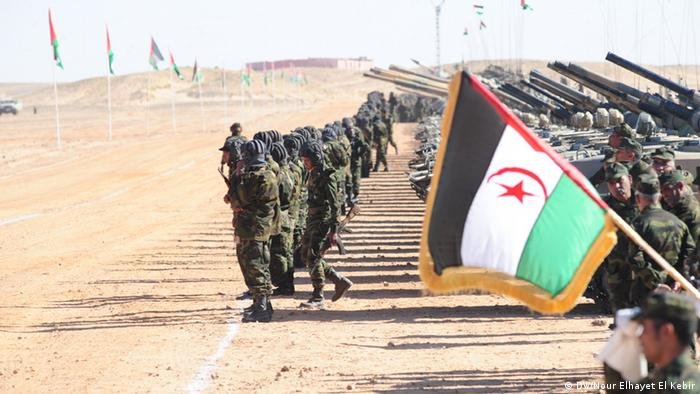
Added to this, the Algerian-Moroccan rivalry in North Africa where Spain is acquired more for Morocco; because it follows the policy of the European Union in terms of gas; and where Algeria is a powerful state of gas that can use this weapon in future circumstances.
Thus Spain believes in the American strategy which wanted to make Spain the main forwarder of petrol and gas for the EU, and the hypothetical gas from Nigeria to Spain is another reason, where Morocco will play the role of intermediary, knowing that this gas should pass through Western Sahara.
The other factor in our opinion is internal. The two cities Ceuta and Melilla are in favor of the right-wing electorate. President Sánchez wants to win seats in these two cities in the next elections without allying with other political party.
NM: Earlier in 2020, the US had recognized Morocco’s claim over Western Sahara, in return for Morocco establishing diplomatic ties with Israel. It was a phase where a number of Arab countries changed their stance towards Israel. Where does Western Sahara see itself in the geopolitical competition of the Middle East and North Africa region?
EBA: On December 10, 2020, the outgoing president of the United States, Donald Trump, formally announced that Israel and the Kingdom of Morocco will normalize their bilateral relations, being the fourth Arab country to recognize Israel as a result of the Abraham Accords.
As soon as President Donald Trump tweeted on December 10, 2020 that he was signing a “proclamation” recognizing the illegal Moroccan occupation of Western Sahara, convictions arose within and outside the United States considering the outgoing president’s decision contrary to international law.
It should be noted that in 2004, Robert B. Zoellick declared that the existing free trade agreement between the United States and Morocco did not apply to Western Sahara.
But Morocco wants to dilute the question of Western Sahara in the problems of the Middle East, in order to take advantage of the Monarchic countries of the Gulf, and to invest in the Algerian-Israeli animosity and the Algerian Arab animosity. Firstly, to isolate Algeria principally helping the Sahrawi people with South Africa, and secondly, to block the process of decolonization in Western Sahara by using the lobbying of Arab countries and Israel. It is a new geopolitical approach with the intervention of different actors.

NM: Could you tell us about Polisario Front and its role?
EBA: The Polisario Front is a successor to the Sahara Liberation Movement which existed in the 1960s, under the impetus of Mohammed Bassiri, and whose uprising was crushed by Franco’s troops.
Refusing the Moroccan and Mauritanian occupation, the Polisario Front immediately began the struggle. In February 1976, it proclaimed the Sahrawi Arab Democratic Republic (SADR), a state not recognized internationally but recognized by around 84 countries mainly in Africa and Latin America, which claimed sovereignty of the territory. Tens of thousands of Sahrawis, fleeing the Moroccan bombardments, took refuge in camps set up around Tindouf, in south western Algeria.
Indeed, the early 1970s would see marked changes take place in the region. The immediate neighbors of Western Sahara ended up forming a common front, after the settlement by Morocco of its border dispute with Algeria, as well as its recognition of the sovereignty of Mauritania.
This bloc decided to put pressure on Spain, while on the other side, the United Nations was increasingly calling on Spain to organize a referendum on self-determination for the people of Western Sahara.
The Saguia el Hamra and Rio de Oro Liberation Front (Polisario Front), was born on May 10, 1973 and was supported by Algeria. On May 20 of the same year, the Polisario front attacked the Spanish police station of El Khanga and encouraged by this gesture, opened hostilities vis-à-vis the occupation and for national pride.
NM: What exactly is the nature of Algeria’s involvement in Western Sahara?
EBA: You must first know that Algeria was the object of a surprise war by Morocco in 1963, namely the Sands War, when Algeria had recently attained independence. For Morocco several regions of western Algeria, Mauritania and Western Sahara are Moroccan up to the borders of Senegal, a part of the “great Morocco”.
In 1969, the Treaty of Ifrane was signed to settle the border disputes between Algeria and Morocco to erase the stigmata of the Sands War of 1963 and the skirmishes that had preceded it.
A few years later, on June 15, 1972, a bilateral agreement ratified the border line between the two countries. By this text, Algiers and Rabat undertook to respect the borders inherited from the colonial period, taking up this as one of the founding principles of the Organization for African Unity (OAU, which has since become the African Union) calling it as the intangibility of the borders inherited from the colonial period. But Morocco does not recognize this until today in its constitution. This situation is dangerous for the stability and the future of the Maghreb.
Apart from the question of territories, there is also a question of geopolitics. The two regimes have different alliances, and Algeria sees in Morocco an imperialist and colonial state.
That the Algerians want an outlet to the Atlantic could also be one of the causes, without forgetting the Algerian doctrine of its foreign policy respects the international law of decolonization, since Algeria is the result of a murderous war of decolonization.
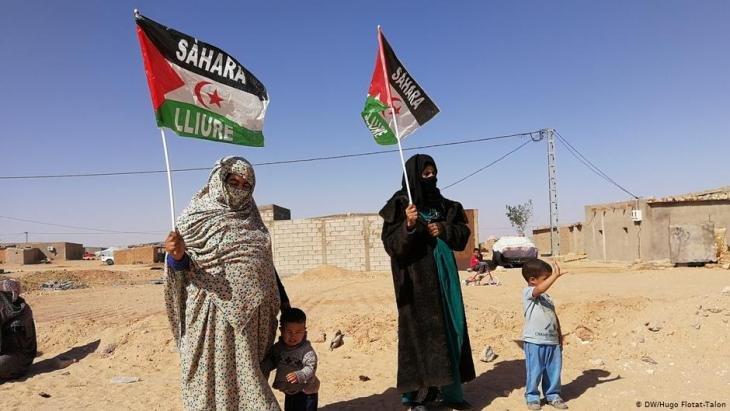
NM: What would be the status of the UN resolutions on Western Sahara? The Security Council Resolution 690 established MINURSO in 1991. Further in 2016, the Security Council adopted Resolution 2285 and called upon Morocco and Polisario Front to conduct more intensive and substantive negotiations. In 2021, the UN adopted Resolution 2602 and extended the mandate of MINURSO until October 31, 2022.
EBA: It was in 1984 that Morocco withdrew from the Organization of African Unity (OAU) to protest against the admission of the SADR to this organization. In December 1985, the United Nations General Assembly adopted resolution 40/50 on the Sahara, inviting the then President of the OAU and the Secretary General of the United Nations to work with a view to bring the parties for negotiation as soon as possible. This was in accordance with the UN resolution (cited above) and to create conditions for a ceasefire and work out the modalities for organizing a referendum in Western Sahara.
In April 1991, the United Nations Security Council adopted resolution 690 (1991) approving the constitution under its authority of the United Nations Mission for the Organization of a Referendum in Western Sahara (MINURSO). This comprises of three components: Civilian Unit, Security Unit, and Military Unit.
So far, only the ceasefire agreement for the peace settlement has been followed up favorably. The blocking of the second part led the United Nations to make new proposals: in 2001 and 2002.
At the origin of this blocking is the question of the voters: the people entitled to vote. Indeed, Morocco wants at all costs that the eligible voters are in its favor. For that it has done everything to block the referendum process, so as not to pass through the ballot box as a democratic choice.
This situation plays in favor of Morocco and which led to the blocking of the UN peace settlement plan helped in this by the US and France, both permanent members of the Security Council.
The United Nations began to explore other ways called the “third way” or a framework agreement, which grants greater autonomy to Western Sahara while attaching it to Morocco for five years after which a referendum will be organized in the territory.
For resolutions 2285 of 2016 and that of 2602 of 2021, the UN seems to be in favor of a solution which privileges Morocco more than the Sahrawis by claiming that the two parties must negotiate a fair and mutually acceptable political proposal something which cannot be achieved, without the real political will of the Security Council. Thereby, this situation encourages a continued stalemate.
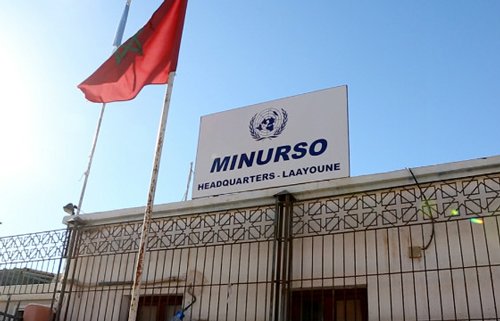
NM: What are the future prospects for Western Sahara?
EBA: The support by Spain for Morocco’s 2007 autonomy plan is in order to settle the crisis in which Madrid and Rabat have been immersed for months represents a “serious violation of International Law”.
The future of Western Sahara is increasingly uncertain in the face of new world order. After the war in Ukraine, things seem to be reshaping. Morocco was able to balkanize the political situation, by allying with Israel (which represents powerful political lobbying among the US political decision-makers), and at the same time, Israel will be a military ally on the ground. Not to mention, Israeli companies will persist to reap the fruit of Morocco’s relations with Israel to explore and exploit the enormous wealth of which the territory of Western Sahara conceals. It consists of precious materials such as phosphate, iron, gold, as well as fish or agriculture and others scarce materials etc.
The main goal is to perpetuate the conflict, or to force the Sahrawi people to accept the fait accompli. This situation will necessarily lead to a war in North Africa. It should be known that, at present there is a war going on between the Polisario Front and the Moroccan military forces, but its intensity is low, just on the wall of sands, which separates the territory of Western Sahara in two parts, one under Moroccan control (80%) and another part under Polisario control (20%).
Indeed, a likely war between Algeria and Morocco will lead to alliances with several states and it will lead to the globalization of the conflict. The main goal for Morocco, France and Spain is to change the nature of the Western Sahara question, from a conflict of decolonization and rights, to a conflict of geopolitical war between the great powers (where the Saharawi territory is a battlefield).
Nowadays, international relations are driven by political actions rather than by the states’ adherence to the principles of international law. Therefore, international law will continue to be flouted in Western Sahara, because the questions of decolonization and self-determination of people are more in line with historical time than in current events in Europe or in specific geostrategic calculations.


















